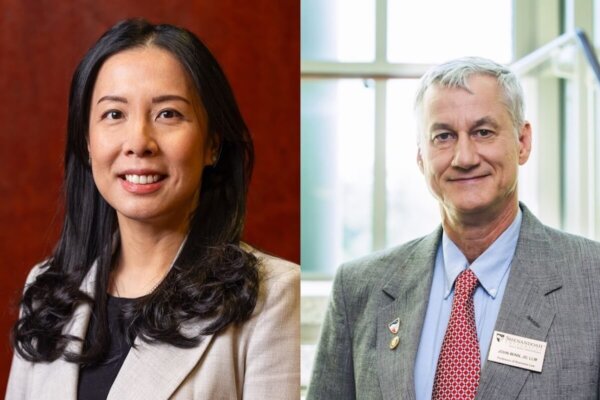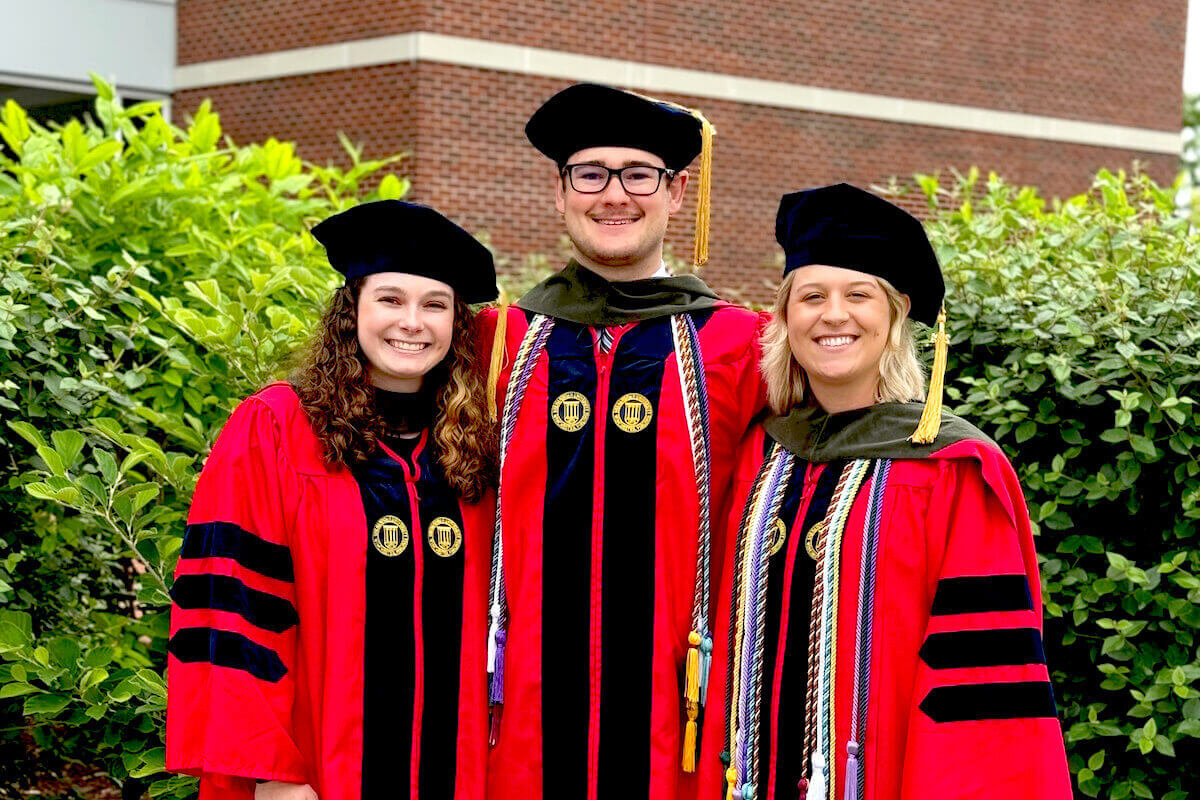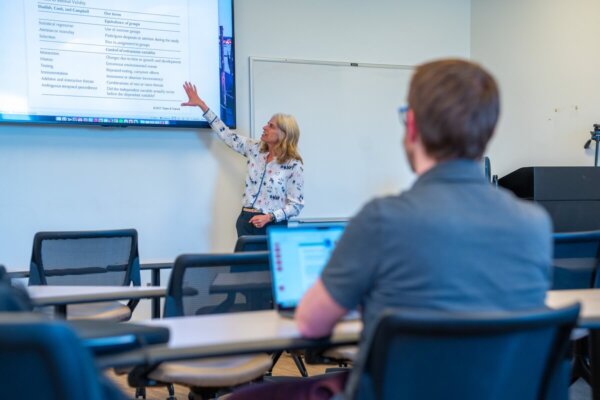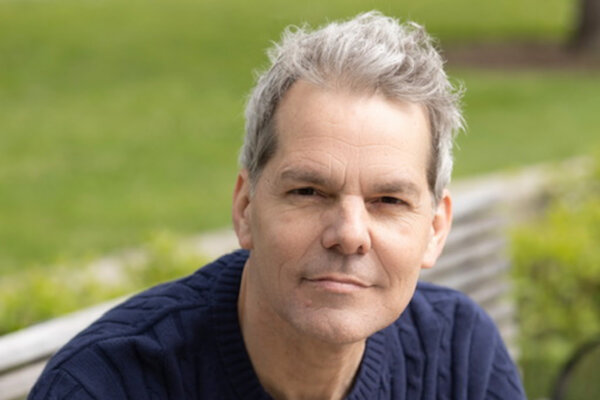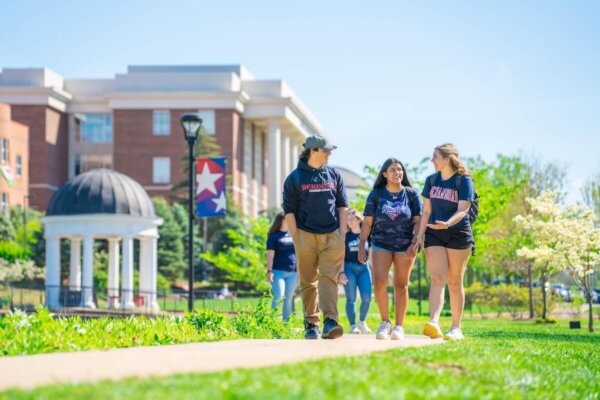Board Votes to Rename School of Business
Decision effective immediately after unanimous vote
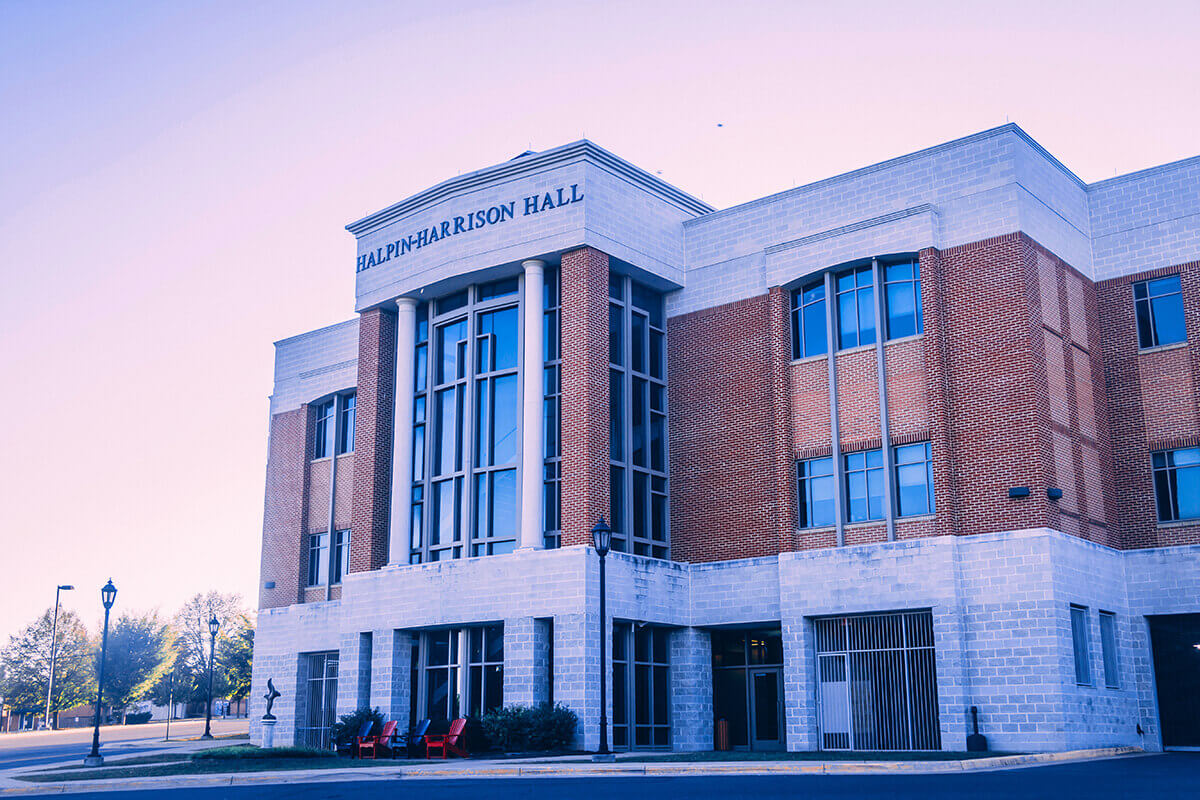
Shenandoah University will remove the name of Harry F. Byrd, Jr. from our School of Business.
The decision, effective immediately, came on Wednesday, June 10, after a unanimous vote from the university’s 38-member Board of Trustees (present for the vote) to remove the name from our business school and board room in recognition of the school’s ongoing commitment to be a welcoming and inclusive institution for all.
At Shenandoah, we encourage the best, the brightest, the inspired, to come learn with us, in the spirit of equitable access for every one of our students. This decision today about the business school is reflective of our commitment to continuing efforts toward racial justice and equality for all.”
Board of Trustees Chairman Rob Frogale
This important decision is one of several steps we have endeavored to and will continue to take against racism and to establish a culture that is unequivocal in its commitment to Black lives and antiracism. The university is committed to deeply and continuously reflecting on our strategic plan and mission to foster a campus culture of “compassion, responsibility, advocacy, and justice, which graduates are inspired to replicate in communities beyond Shenandoah.”
The School of Business will join the School of Health Professions, the College of Arts & Sciences, and the Shenandoah Conservatory by not carrying an individual’s name.
In 1984, the Board of Trustees of Shenandoah College and Conservatory voted to honor Sen. Harry F. Byrd, Jr., a former state and U.S. senator, by naming the Shenandoah School of Business Administration after him. Byrd, a Virginia native and resident of Winchester, went on to become a distinguished lecturer at Shenandoah, where he spoke about his experience in government and being the first person in history to be elected to the Senate twice as an Independent. Byrd died in 2013.
While the Senator shared with many individuals later in life that he had changed his mind with regard to educational access, Byrd’s belief in the segregation of schools in the 1950s and his actions as a Virginia state senator on behalf of the Massive Resistance effort in Virginia run counter to our strategic plan and its mission of establishing a campus culture that fully embraces inclusion and diversity.
The board and I understand that we cannot be an institution that serves all students equitably when our business school still holds the name of an individual who denied full integration of schools. Although we cannot change history, we have the power to build a better future in which everyone is treated with respect and receives the same opportunities, regardless of race or ethnicity. With life comes experiences, relationships and education that illuminate historical injustices and help us better understand the injustices in our world today. That is what has happened here at Shenandoah. It is during this time in our national history, in which Black individuals continue to experience daily and systemic acts of racism, that we must stand up and act swiftly in order to move forward to a more fair and equitable future.”
President Tracy Fitzsimmons, Ph.D.
To that end, we’ve denounced racial injustice and are enacting several measures, including the establishment of an anonymous system to report discrimination, a review of our curricula to ensure that academic programs reflect and support the diversity of history and society, additional diversity and inclusion training for all members of the university community, and the establishment of a diversity scholarship to support recruitment and retention of students of color in underrepresented programs. Along with these actions, the university is committed to maintaining a posture of listening and learning from our Black students, alumni, faculty, and staff.
A virtual forum was held earlier Wednesday titled “Past, Present & Future: An Open Forum on the Naming of the Harry F. Byrd, Jr. School of Business.” Hundreds of Shenandoah students, staff and faculty members, alumni, and members of our Shenandoah community joined online to express their thoughts and concerns about the name of the university’s business school.
